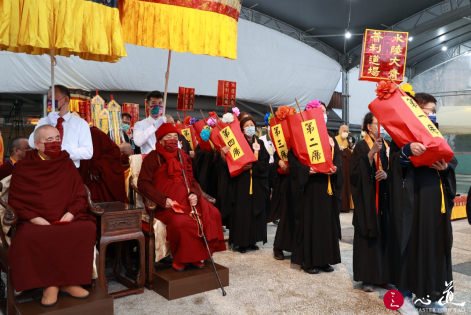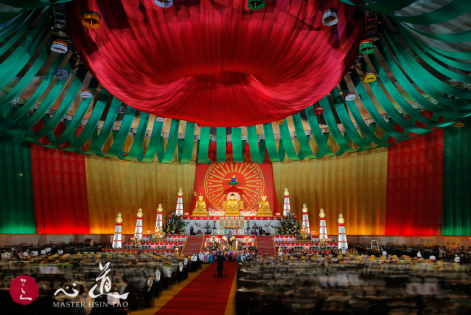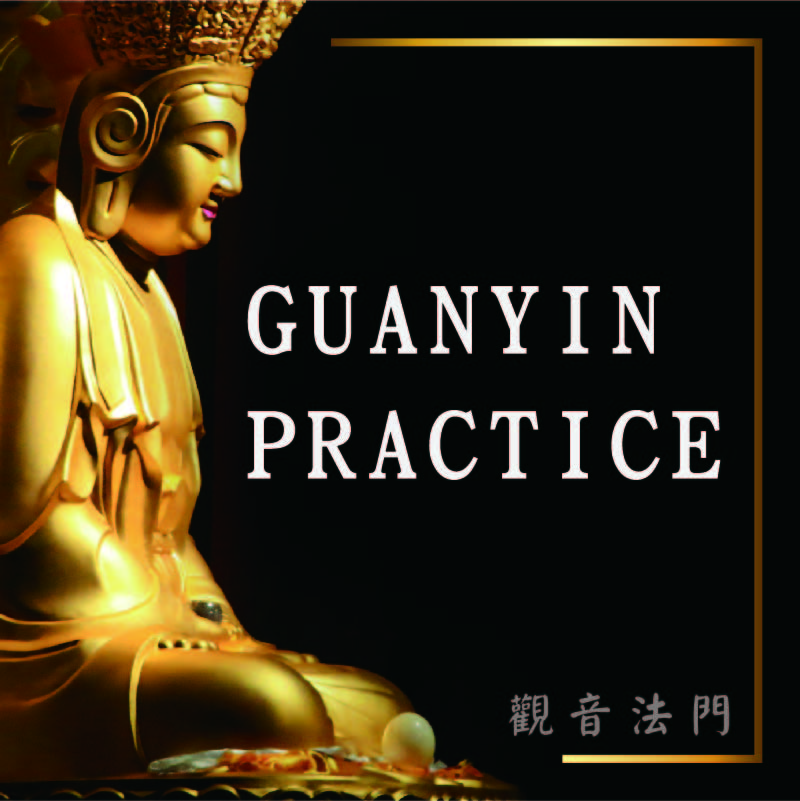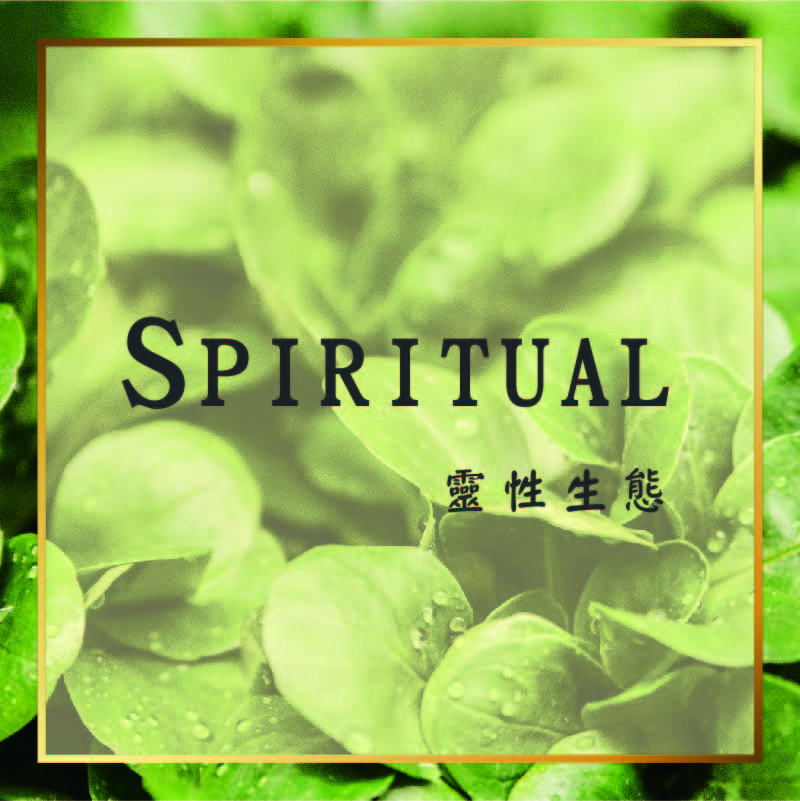
The Wondrous Mind of Nirvana with Pristine Aspiration
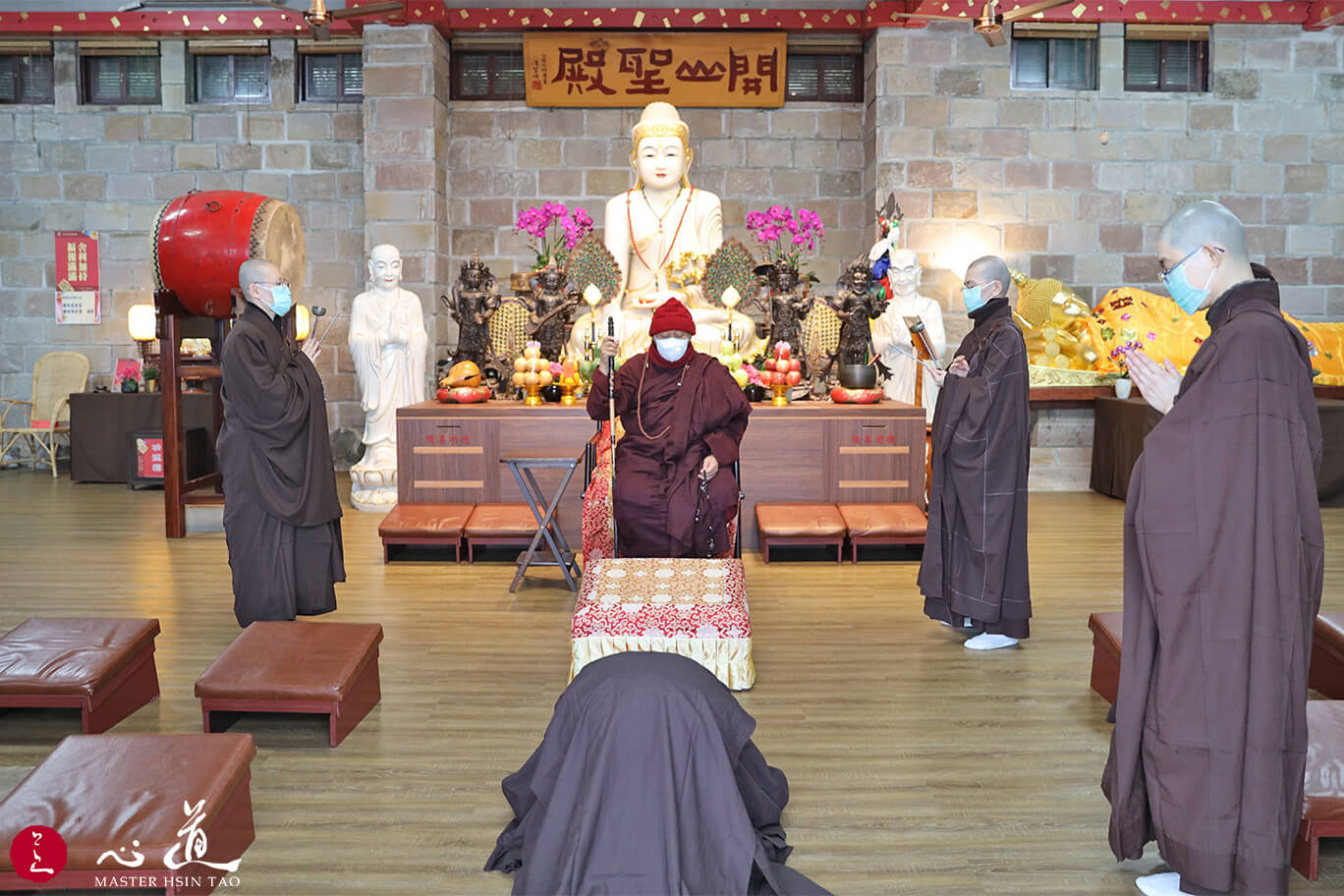 December 31st, 2020, finally drew an end to the year. It was also the birth anniversary of Buddha Amitabha. A young practitioner assumed monasticism and received the Dharma name, "Zhan Fa", which means "the wondrous mind of nirvana and the pristine Dharmadhatu”. The name carries the blessing for the new monastic to observe a pure intent and the aspiration to set beings free from suffering for the ultimate happiness.
December 31st, 2020, finally drew an end to the year. It was also the birth anniversary of Buddha Amitabha. A young practitioner assumed monasticism and received the Dharma name, "Zhan Fa", which means "the wondrous mind of nirvana and the pristine Dharmadhatu”. The name carries the blessing for the new monastic to observe a pure intent and the aspiration to set beings free from suffering for the ultimate happiness.
 Monasticism is a long-term commitment by assuming the Dharma activities of the Buddha. It is the continuation of Dharma for the welfare of sentient beings. It is more than a change of lifestyle but to be devoted to serving. How to serve devotedly? Firstly, we must uncover our nature of mind. Then, we'd know how to truly benefit others. This is the goal for anyone who takes up monasticism – to recognize this very mind in realizing the uncompounded dharmas.
Monasticism is a long-term commitment by assuming the Dharma activities of the Buddha. It is the continuation of Dharma for the welfare of sentient beings. It is more than a change of lifestyle but to be devoted to serving. How to serve devotedly? Firstly, we must uncover our nature of mind. Then, we'd know how to truly benefit others. This is the goal for anyone who takes up monasticism – to recognize this very mind in realizing the uncompounded dharmas.
Surely, monastic life is to discipline our body, speech, and mind in order. One would observe precepts accordingly with the teachings. The physical conduct is to take actions in liberating sentient beings. Be mindful of our language is verbal conduct. Whereas a mind of the four immeasurables (loving-kindness, compassion, joy, and equanimity) is the mental conduct. Bodhicitta is none other than aspiring to attain Buddhahood and to liberate sentient beings. It is a long and unceasing activity of wisdom and compassion.
 Next, one must take reliance on a qualified spiritual teacher, bodhimanda, and sangha. First of all, to study under a qualified teacher, one should learn to be free from cyclic living and dying. The student should open up and receive the physical, verbal, and mental conduct of the teacher completely. Secondly, a bodhimanda is where the monastic would stay and study for a long period. It is a place to cultivate a life of wisdom. One should be ready to settle in this place for a long time with gratitude to protect it as well. Take the readiness to devote our body, mind, and spirituality to this bodhimanda.
Next, one must take reliance on a qualified spiritual teacher, bodhimanda, and sangha. First of all, to study under a qualified teacher, one should learn to be free from cyclic living and dying. The student should open up and receive the physical, verbal, and mental conduct of the teacher completely. Secondly, a bodhimanda is where the monastic would stay and study for a long period. It is a place to cultivate a life of wisdom. One should be ready to settle in this place for a long time with gratitude to protect it as well. Take the readiness to devote our body, mind, and spirituality to this bodhimanda.
As one approaches the third year of monasticism, one would be fairly used to a monastic life then. Ethical disciplines help to regulate and cultivate one's renunciation. Eventually, the practitioner would become capable of helping others. All in all, monasticism is a noble commitment and an act of a fearless man because it takes a great aspiration to commit to the Buddha activity – liberating others and attaining enlightenment.


